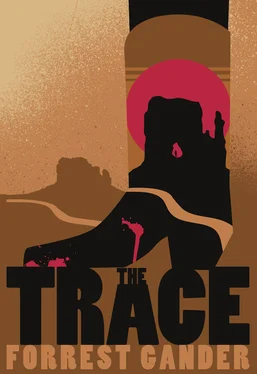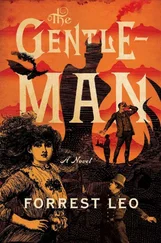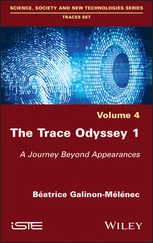Forrest Gander - The Trace
Здесь есть возможность читать онлайн «Forrest Gander - The Trace» весь текст электронной книги совершенно бесплатно (целиком полную версию без сокращений). В некоторых случаях можно слушать аудио, скачать через торрент в формате fb2 и присутствует краткое содержание. Год выпуска: 2014, Издательство: New Directions, Жанр: Современная проза, на английском языке. Описание произведения, (предисловие) а так же отзывы посетителей доступны на портале библиотеки ЛибКат.
- Название:The Trace
- Автор:
- Издательство:New Directions
- Жанр:
- Год:2014
- ISBN:нет данных
- Рейтинг книги:3 / 5. Голосов: 1
-
Избранное:Добавить в избранное
- Отзывы:
-
Ваша оценка:
- 60
- 1
- 2
- 3
- 4
- 5
The Trace: краткое содержание, описание и аннотация
Предлагаем к чтению аннотацию, описание, краткое содержание или предисловие (зависит от того, что написал сам автор книги «The Trace»). Если вы не нашли необходимую информацию о книге — напишите в комментариях, мы постараемся отыскать её.
The Trace — читать онлайн бесплатно полную книгу (весь текст) целиком
Ниже представлен текст книги, разбитый по страницам. Система сохранения места последней прочитанной страницы, позволяет с удобством читать онлайн бесплатно книгу «The Trace», без необходимости каждый раз заново искать на чём Вы остановились. Поставьте закладку, и сможете в любой момент перейти на страницу, на которой закончили чтение.
Интервал:
Закладка:
And here, now. She could hear the ghosts of the past. Miners and whores, married couples and their children, who made brief claims against the desert and oblivion. People who, with every muscular contraction, every embrace, every swallow of pulque and water, proclaimed that they themselves were, among all those who had come before them, the only ones privileged to their particular moment. Their now. They were the living. They filled their lungs with dry air, they walked and slept and dreamed. And now, in her own now, Hoa thought, not so many years later, those others were snuffed out. And their last readable signs were being subsumed by the desert.
Hoa thought about Declan, but this was a given, a constant, something she simply couldn’t help. Like the blue mountains in the distance. She worried about him, and kept the worry to herself. There was nothing Dale could do about it, nothing she could either. She knew Dale was dealing with the same pain, trying to jerrybuild a daily life around the silence of their boy. The last time Declan had called, Dale had answered the phone and she had repeatedly interrupted Dale’s conversation, telling him what to say, what not to say, and finally indicating with hand signals that she needed to talk to Declan herself. But when Dale handed her the phone, Declan had already hung up.
And Dale was, in fact, thinking about their son at the same time. It was likewise something he couldn’t help. He wondered what Declan would think of this ghost town, but he didn’t want to say anything to Hoa, she had been depressed for so long.
Each protecting the other’s vulnerability with their own silence, each carrying the boy privately, and so they bore him together. Their son wasn’t simply shared. He was multiplied between them.
* * *
The ground around the hacienda was hard, almost smooth but for mud bricks and parts of bricks that had tumbled out of the walls. They stepped under tenuous, sloped copings and stuck their heads into doorways, into staved openings that had become doorways, and looked at barren, unroofed interiors that precisely resembled the exterior. No birds. No rodents. From a little distance, the corrugated mud walls appeared to be made of cardboard. Inside the walls, the spaces were clean, with little vegetation and no trash. You stepped from the sunlit world under the lintel and entered the sunlit world.
With his phone, Dale was taking photographs of the traces of words painted over an archway. There was the word ESTAS, an N, maybe an A, and an I. The letters might have been red once, but they were reduced to a subtle rust-tinged glow, like a car’s cigarette lighter just before it goes dark.
Hoa was beside him again, contemplating the illegible letters.
Maybe the last word on the wall, Dale thought, was BABEL? Taking a photograph of the ambiguous graffiti, Dale suddenly
realized what it said. ESTAS EN BABIA. He had no idea what that meant. You’re in Babia? He powered off his phone, watching the white gear spin until the screen went black. Turning his way, Hoa saw he was looking at her, his eyes watery with emotion for just a second.
They looped back to the church where they had parked and Hoa stepped first through the big door, a beautiful piece of carved wood in the weathered marble facade. Standing to one side, urinating into the dust, Dale heard her exclaim, “Ahh.”
“Let’s see,” he called, zipping up. He reached for the folded paper from his back pocket and plucked his pen from the thigh pocket of his cargo pants. He assumed it would be like the rest, a barren enclosure. But the inside of the church had been partly restored: a rectangular room, roofless, its newly whitewashed adobe walls radiant with refracted evening light. Behind the whitewash were pastel traces of old murals. The dirt floor had been swept clean, and someone had laid polished concrete tile in front of an altar. Dale could see a niche decorated with plastic flowers and small statues of saints and sacred-heart candles.
They approached the altar slowly, together, their steps in sync, it occurred to Hoa, like they were supplicants. Above them, instead of a ceiling, there were wisps of cloud and blueing sky. On the floor before the altar, what looked at first to Hoa like glasses of milk turned out to be glasses of white candle wax. The niche of the altar had been painted baby blue, but this had only encouraged graffiti, although some of the words were scraped into illegibility or hidden by judiciously arranged plastic flowers. A hand-written cardboard sign hanging from the wall gave AVISO IMPORTANTE, noting that while the chapel was being rehabilitated, offerings had been removed, but would be returned when the rehabilitation was complete. Dale watched Hoa making her way through the language on the sign.
Then something gleaming on the floor caught Dale’s eye. Beside his foot, a concrete tile had been replaced by a marble one. The paler stone seemed to be shining from within, or lit from below, and it was inscribed, Nuestro hijo se fue con los angeles. Our child has gone with the angels. The jolt Dale felt was purely personal. Hoa was inspecting the statuary at the altar. Dale called out, maybe a little too loudly for a sacred space, “Let’s saddle up, we need a place to sleep tonight.”
He headed briskly for the door. When she came out, he said, “Why don’t you keep driving, and I’ll tell you what happened to Ambrose Bierce here.”
“You think we’re going to get all the way back to Monclava before it’s dark?”
“We’ll make it. But we need to get gas.”
“I’m completely beat,” she said. “And I need a bathroom.”
“I’d go here somewhere,” Dale said.
“It’s not that kind.”
“I’d still go here. Do you have any tissue paper?”
She took her purse from the car and walked behind one of the ruins they had first explored, as though someone else might be watching.
Dale stood in the shadow of the church wall thinking about the little unspoken twenty-year contention they had about toilet paper in their bathroom. Hoa would always put the roll on the holder in the under position, and Dale would sit down, take off the roll and put it back in the over position. Generally, it would stay like that for a few days, a week or two, and then he would find it reversed again with the toilet paper hanging down against the wall. Neither of them had ever mentioned it.
Dale met Hoa walking toward the car.
“Tomorrow’s the shortest day, in terms of mileage. If we get back to Monclava tonight, it’ll be a lot easier on us mañana. Not to mention, we don’t really have any options. Not unless we want to spend the night here.”
Hoa looked around. It was evening. The distance was sealed with mountains, the first stars flickering into view. Some strange unexpected sadness penetrated her and pressed against her heart.
* * *
The evening before they started on this trip, Hoa had pulled her Subaru into the garage, closed the door behind her, and studied the long scrape along the right wheel well. A month earlier, backing out, she had run into the side of the garage. If they reported it to the insurance company and took the deductible, their rates would go up. She wrestled a forty-pound bag of potting soil onto the porch, opened the door, turned on the lights in the kitchen, and dropped her purse on the chair at the breakfast nook.
Salad and pasta and pesto sounded all right. She took a look in the refrigerator to see if there were any pine nuts. A minute later, she was still bent over, staring into the refrigerator. What had she been looking for? What was she afflicted with?
Arranging salad fixings on the counter, Hoa glanced out the glass door. Dale’s pickup was pulling into the driveway. It was just after six, the driveway in shadow. Generally, Dale tried to take care of all his schoolwork at school. He wanted home to be his “hallowed cove.” So he stayed at the university late, grading papers and preparing classes in his one-window office. At home, he would work on his Bierce book at a desk in the basement.
Читать дальшеИнтервал:
Закладка:
Похожие книги на «The Trace»
Представляем Вашему вниманию похожие книги на «The Trace» списком для выбора. Мы отобрали схожую по названию и смыслу литературу в надежде предоставить читателям больше вариантов отыскать новые, интересные, ещё непрочитанные произведения.
Обсуждение, отзывы о книге «The Trace» и просто собственные мнения читателей. Оставьте ваши комментарии, напишите, что Вы думаете о произведении, его смысле или главных героях. Укажите что конкретно понравилось, а что нет, и почему Вы так считаете.












